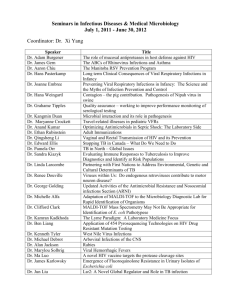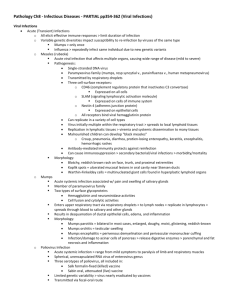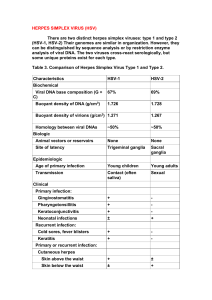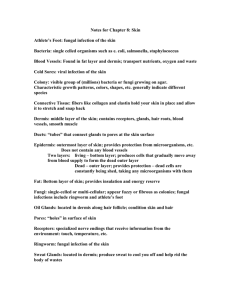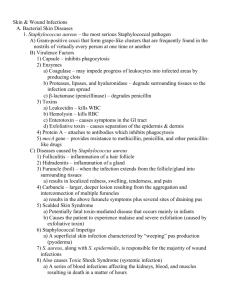Viral Infections
advertisement
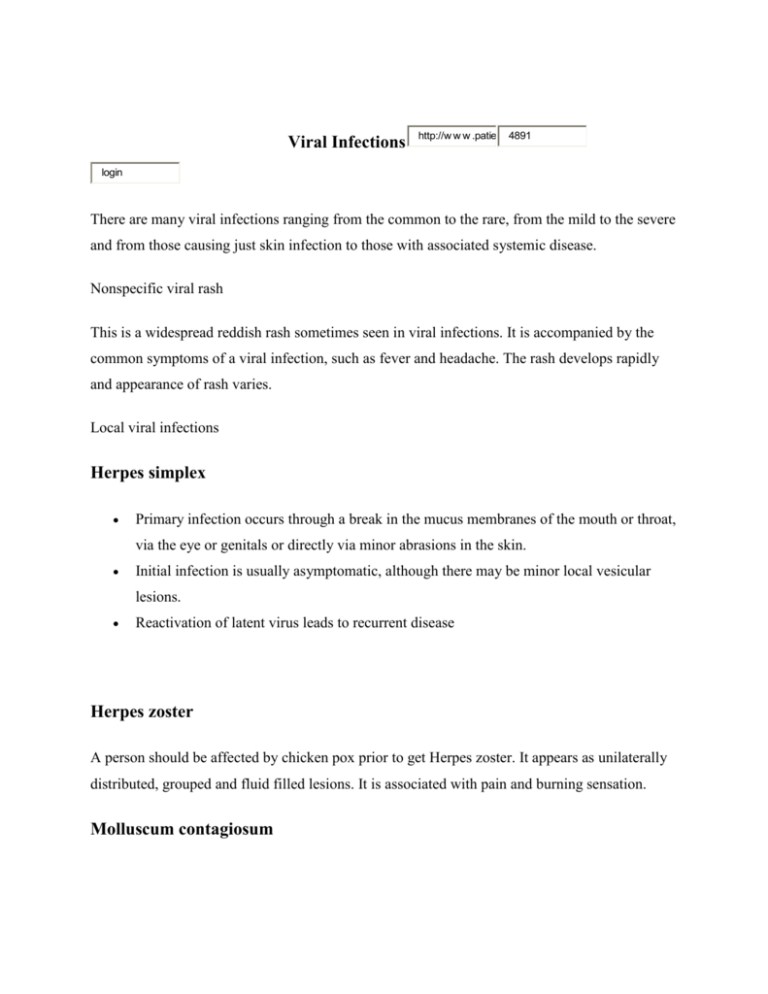
Viral Infections http://w w w .patie 4891 login There are many viral infections ranging from the common to the rare, from the mild to the severe and from those causing just skin infection to those with associated systemic disease. Nonspecific viral rash This is a widespread reddish rash sometimes seen in viral infections. It is accompanied by the common symptoms of a viral infection, such as fever and headache. The rash develops rapidly and appearance of rash varies. Local viral infections Herpes simplex Primary infection occurs through a break in the mucus membranes of the mouth or throat, via the eye or genitals or directly via minor abrasions in the skin. Initial infection is usually asymptomatic, although there may be minor local vesicular lesions. Reactivation of latent virus leads to recurrent disease Herpes zoster A person should be affected by chicken pox prior to get Herpes zoster. It appears as unilaterally distributed, grouped and fluid filled lesions. It is associated with pain and burning sensation. Molluscum contagiosum This is a skin infection caused by a DNA pox virus that affects both children and adults. Transmission is usually by direct skin contact and has occurred in contact sports and by sharing baths, towels and gymnasium equipment. Outbreaks in schools are well recognized. Autoinoculation produces linear lesions. Warts Warts are caused by human Papillomavirus. Common warts appear as papules and nodules with a keratotic and papillomatous surface. They occur anywhere but are most common on the hands in young people and children. Other types include: Filiform warts - these are small finger-like warts consisting of hyperkeratotic projections Orf Obtained from sheep and goats. It is caused by a parapox virus, which infects mainly young lambs and goats. Human lesions are caused by direct contact of infected material. It may occur in farmers, butchers, children who bottle-feed lambs and possibly even children who play in pastures where sheep have grazed. The lesions are small, firm, red or reddish-blue. They form a lump that enlarges to form a flat-topped, blood-tinged pustule or blister. They usually occur on the fingers, hands or forearms but may be on the face. Red lymph lines may occur on the medial side of the elbow up to the axilla. There may be a mild fever. A vaccine has been developed to control the infection in sheep. Viral infections that produce rashes There are a number of viral infections that may cause a rash - most of them typically in childhood. Examples include: Measles. German measles (rubella). Chickenpox Fifth disease (erythema infectiosum) Roseola Pityriasis rosea Echovirus and adenovirus infections Epstein Barr virus of infectious mononucleosis Primary HIV infection Other viral infections with skin involvement Hand, foot and mouth disease Herpes gladiatorum The name implies association with martial arts. In association with rugby it is called 'scrum pox'. Transmission is primarily by direct skin-to-skin contact and abrasions may facilitate a portal of entry. The majority of lesions occur on the head or face, followed by the trunk and extremities. A prodromal itching or burning sensation is followed by clustered vesicles on an erythematous base which heal with crusts over about 1 to 2 weeks. Less often, headache, malaise, sore throat and fever may be reported. *****
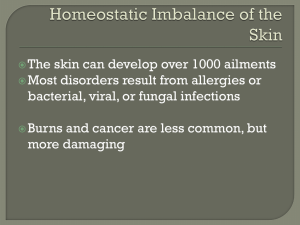
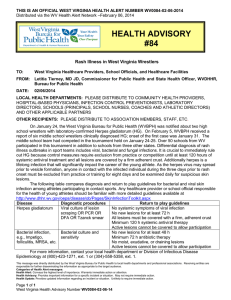
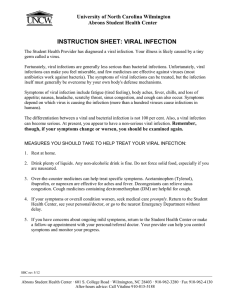
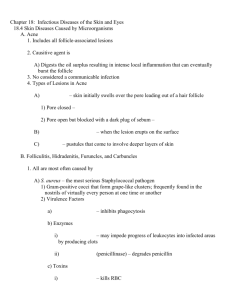
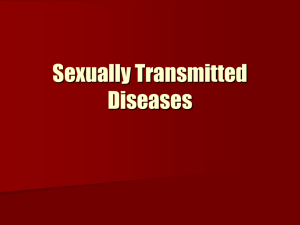
![Info. Speech Packet [v6.0].cwk (DR)](http://s3.studylib.net/store/data/008110988_1-db39bdd1f22b58bf46d9a39ab146e2e3-300x300.png)
